Kiroro (キロロ) is a Japanese pop duo from Yomitan, Okinawa that debuted in 1996.

Affection is the debut studio album by Japanese R&B-turned-pop singer Koda Kumi. It was released on March 27, 2002. It has been her only album to not chart in the Top 10, debuting at #12 on Oricon and staying on the charts for six weeks, making it her lowest-charting studio album. During its run, it had only sold 91,360 copies. The limited editions of the album contained remixes for "Take Back" and "Trust Your Love", which had previously been released on her North American release of the singles.
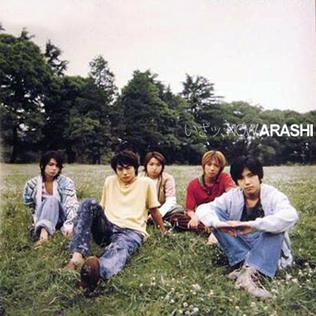
Iza, Now! (いざッ、Now!) is the fourth studio album of Japanese boy band Arashi. It was released on 21 July 2004 through J Storm. Two singles were released from the album: "Hadashi no Mirai/Kotoba Yori Taisetsu na Mono" and "Pikanchi Double". The album debuted at number one in Japan, selling 115,000 copies in its first week.

"Love So Sweet" is a Japanese song, and the eighteenth single, by the Japanese boy band Arashi. The single was released in two editions: a regular edition containing a bonus secret track and karaoke versions of the songs released in the single, and a limited edition containing a bonus track entitled "Fight Song". With its lyrics written by Arashi and music composed by member Kazunari Ninomiya, it was created in 2006 as an image song for the group's variety show G no Arashi.
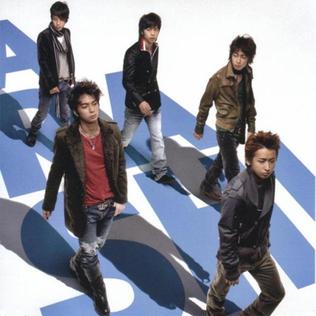
"Wish" is the fifteenth single of the Japanese boy band Arashi. The single was released in two editions: a regular edition containing karaoke versions of the songs released in the single, and a limited edition containing a bonus track. The regular edition also contains a hidden track of the group's Secret Talk, in which the members' conversation lasted about forty-two minutes in total before the track was edited down to about thirty-eight minutes.

"Hadashi no Mirai/Kotoba Yori Taisetsu na Mono" is the eleventh single of the Japanese boy band Arashi and their second double A-side single. The single was released in two editions: a regular edition containing the karaoke versions of all the songs released in the single, and a limited edition with a deluxe cover art.
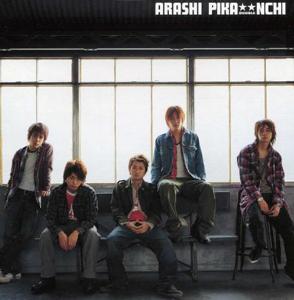
"Pikanchi Double" is the twelfth single of the Japanese boy band Arashi. The single was released on 18 February 2004 in two editions: a regular edition containing the karaoke versions of all the songs released in the single, and a limited edition with a deluxe cover art and a bonus track.
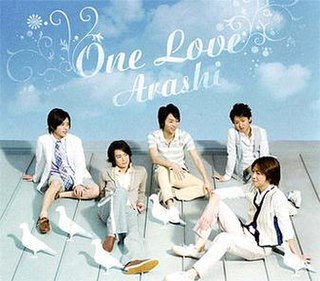
"One Love" is the twenty-second single of the Japanese boy band, Arashi. The single was released in two editions: a regular edition containing the karaoke versions of all the songs released in the single, and a limited edition containing only the title track and a DVD of the music video. For the first time in Arashi's discography, a song remix of all the three Hana Yori Dango theme songs was included in the Limited Edition release. The single was later re-issued in commemoration of the success of Hana Yori Dango Final with an insert of two-minute dialogue by Arashi member Jun Matsumoto acting as his Hana Yori Dango character Tsukasa Dōmyōji

"Yeah! Break! Care! Break!" is the eighth single by Japanese pop artist Takayoshi Tanimoto and the second with Takafumi Iwasaki as the unit "Dragon Soul". It was released on CD on June 24, 2009, as both a regular edition and a limited edition which included a Dragon Ball Kai Dragon Battlers trading card game card. The A-side is the first ending theme for the anime Dragon Ball Kai. The B-side is performed by Saki Oshitani, and was used as an insert song for Kai. The single remained on the Oricon charts for 8 weeks, peaking at #23. In 2010, when Kai was licensed by Funimation, they produced an English version of the ending, sung by Jerry Jewell.
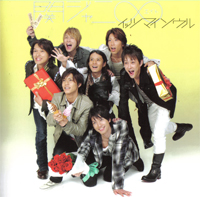
"It's My Soul" is the seventh single released by the Japanese boyband Kanjani8. The song follows the same disco/funk trend that its predecessor and album featured. There were two versions of this single released, with the limited edition single featuring a special double secret sticker.

"Musekinin Hero" is the ninth single released by the Japanese boyband Kanjani8. The single was the first that featured three separate versions since the release of Kan Fu Fighting. The two limited edition singles featured different B-side tracks and DVDs of their unit and band performs from the 2009 Summer Concert tour. The regular edition featured one B side.

"Kyū Jō Show!!" is the tenth single released by the Japanese boyband Kanjani8. The single was released in 2009, the first single from the group since the release of "Musekinin Hero" more than a year prior. The single, like its predecessor, was released in three different editions. The regular edition contained the title track and three B-sides, while the limited editions only contained the title track, one B-side, and a DVD. It also marks the first time since the release of "Sukiyanen, Osaka" in 2005 that a PV DVD was included with one of the group's singles.
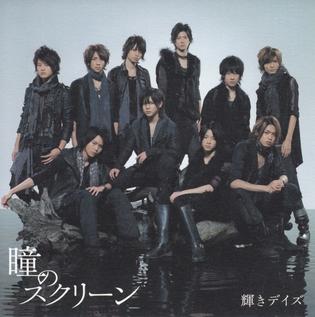
"Hitomi no Screen" is a single by Hey! Say! JUMP, released on February 24, 2010. The single debuted at No. 1 on the Oricon weekly charts.

"Arigatō " is a single by Hey! Say! JUMP. It was released on December 15, 2010.

"Yume Tamago" (ユメタマゴ) is the third released single by the J-pop group NYC. It was released on March 9, 2011 two days before the 2011 Tōhoku earthquake and tsunami. The single was certified Gold by Recording Industry Association of Japan.

"Suki Dakara" (好きだから。) is Beni's eleventh single under the label Nayutawave Records. "Suki Dakara" is a "sad love song that paints a love that you don't give up on even though it may be hard and it hurts." The song is said to be similar to her previous released songs "Mō Nido to..." and "Koi Kogarete" Both songs were later added on Beni's 7th album "Fortune".
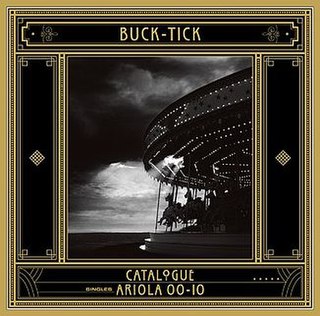
Catalogue Ariola 00–10 is the eighth compilation album by Buck-Tick, released on March 7, 2012. It compiles all of their singles released while signed to BMG/Funhouse and Ariola Japan, from 2000's "Glamorous" to 2010's "Kuchizuke". It and Catalogue Victor→Mercury 87–99 were released on the same day in celebration of Buck-Tick's 25th anniversary.
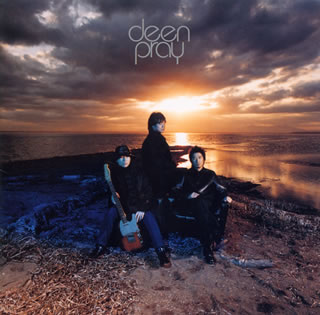
Pray is the fifth studio album by Japanese Pop band Deen. It was released on 20 November 2002 under Berg label records. The album consists of only one previously released single, Birthday eve ~Dare yori mo Hayai Ai no Uta~ and its coupling song. Bonus track "Christmas Time" appeared only in limited first-press release, this song was originally released in conceptual single "Classics One: White Christmas time".
Masao Akashi is a Japanese musical arranger in distributors Being Inc., mainly in their label B-Gram Records.
















